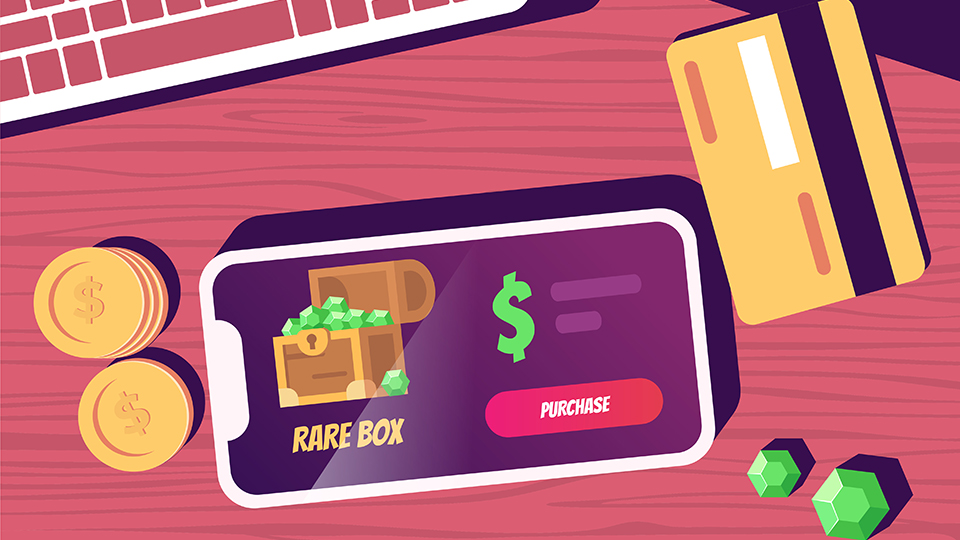
By: Ahmad Salman
Technology has spearheaded our propulsion into the future, but not without risk. The way we work and learn has transformed in a post-Covid world with the prevalence of remote work empowered by Teams, Zoom and Blackboard. The conveniences afforded to us by remote work and learning come at the cost of social interaction and personalization, a void that breakout rooms and 1:1 meetings haven’t been able to fill. The realm of digital entertainment is no exception. Video games are one of the hallmarks of digital entertainment, an industry that will be worth US$334bn in 2023 [1]. It would be naive to assume that the growth in video games popularity and its mass adoption would not come with a slew of challenges to be navigated and addressed.
Video game companies have benefited from record-breaking revenues over the years. How do video game companies make their money? Classically, video game companies develop games and sell them for an upfront payment. Once a customer has purchased a game, the game belongs to the customer to use and enjoy indefinitely [2]. Over the last few years, video game companies have diversified their revenue streams. Freemium models have also been increasingly popular with videogames, where a segment of the game is available to play for free, and the rest of the game lies behind a paywall [3]. One particular revenue stream that video game companies have implemented, with a great deal of success, is microtransactions.
Microtransactions are prevalent in the gaming industry, and often, the lifeline of many companies in 2023. Earlier it was explained that video game companies would make money by developing games, and selling them to customers upfront for a fixed fee. This is a “macro transaction”, a big purchase in exchange for complete access to a game. Video game companies of today like Epic Games and Riot Games have taken an alternate approach. These companies offer their most popular games for free, and have made billions of dollars doing so [4]. Let’s square that circle – how does a company make billions of dollars by offering its product for free? Through microtransactions. Players may freely access the games and can play for hundreds of hours without spending a cent. The video game company makes money by offering their players customizable features for in-game characters, cosmetic items, and upgrades to the overall playing experience. If a character in a game has blue colored hair by default, a player may choose to spend the equivalent of a few dollars to change their character’s hair color to pink. Over the course of playing a game, a user may spend hundreds of dollars through a series of microtransactions to regularly upgrade their in-game character’s fashion. In essence, video game companies offer their games for free and are banking on the fact that players will want to spend money to enhance their gaming experience.
So what’s the issue?
Microtransactions are commonly grounded on chance. Popular games like NBA 2K, FIFA, League of Legends, Fortnite, and Counter-Strike make billions of dollars from “loot box” microtransactions. A loot box microtransaction is one where players use real, fiat currency, in exchange for digital, in-game “boxes”. These opaque digital boxes are opened by players with a promise of containing virtual items, cosmetic upgrades for character or other gameplay altering commodities [5]. When purchasing the loot box, the player has no idea what item they’ll be receiving, and instead, will play the odds of the loot box in hopes of receiving high-value prizes.
There are several contentions with loot box microtransactions. Considering that in games like Counter-Strike, the real-world value of in-game digital knives obtained from loot boxes can be worth thousands of dollars [6] , loot box microtransactions opens a regulatory can of worms. Is a loot box just a digital slot machine that should be regulated by state law as such?
A major problem with the microtransaction world is that microtransactions are common in games that are free to access. The accessibility of free games populates their player base with minors. While the majority of gamers are not under the age of 18, roughly 20% are [7]. Is it wise for a 14-year old, who cannot gamble legally in any state [8], to have unrestrained access to loot box microtransactions which encourages gambling-like consumer spending?
The Federal Trade Commission (FTC) posted a staff perspective on this exact issue, highlighting the existing and potential dangers of the loot box economy that pervades the gaming industry today.[9] The FTC concludes its publication by encouraging the industry to self-regulate and communicate the risks of loot box microtransactions transparently with its customers.[10] Relatedly, the FTC fined Fortnite’s Epic Games US$245 million for engaging in deceptive practice to increase consumer microtransaction spending earlier this year .[11] It remains to be seen if the gaming industry will insulate its players from pernicious practices on its own, or if regulatory regimes and the law will need to step up.
Gaming is one of America’s most popular hobbies across age demographics. It is imperative that lawmakers, regulators and stakeholders in the gaming industry are aware of the pound of flesh that its popularity may demand.
Citations:
- Video Games – Worldwide, Statista Market Forecast https://www.statista.com/outlook/dmo/digital-media/video-games/worldwide.
- Raymond Kenney, How do Gaming Companies Make Money? The Inside Story, Anonymistic (Dec. 14, 2022), https://www.anonymistic.com/how-do-gaming-companies-make-money/.
- Riddhima Pal, Top 7 gaming companies in 2023, (Apr. 7, 2023), https://firstsportz.com/esports-best-gaming-companies/.
- Id.
5. FTC Video Game Loot Box Workshop, (Aug. 13, 2020), https://www.ftc.gov/system/files/documents/reports/staff-perspective-paper-loot-box-workshop/loot_box_workshop_staff_perspective.pdf.
6. Calum Patterson, All CSGO Knives: Most expensive knife, cheapest, and best knives to buy, Dexerto (Sept. 6, 2023), https://www.dexerto.com/csgo/all-csgo-knives-most-expensive-cheapest-and-best-knives-to-buy-1923754/.
7. Bojan Jovanovic, Gamer Demographics: Facts About the Most Popular Hobby, (Apr. 11, 2023), https://dataprot.net/statistics/gamer-demographics.
8. https://www.playusa.com/us/gambling-age/.
9. FTC Video Game Loot Box Workshop, (Aug. 13, 2020), https://www.ftc.gov/system/files/documents/reports/staff-perspective-paper-loot-box-workshop/loot_box_workshop_staff_perspective.pdf.
10. Id.
11. FTC Finalizes Order Requiring Fortnite maker Epic Games to Pay $245 Million for Tricking Users into Making Unwanted Charges, Federal Trade Commission (Mar. 14, 2023), https://www.ftc.gov/news-events/news/press-releases/2023/03/ftc-finalizes-order-requiring-fortnite-maker-epic-games-pay-245-million-tricking-users-making.
